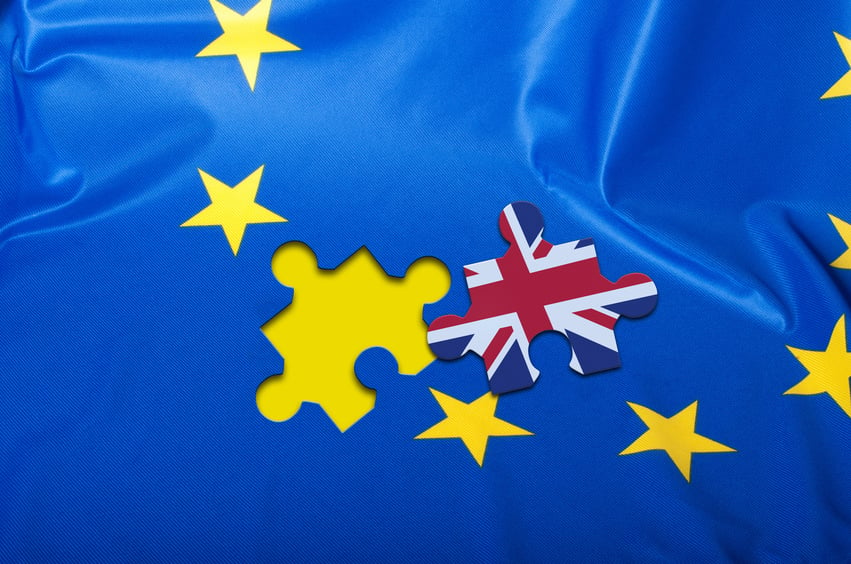If you manufacture, import or supply products in, to or via the UK in some capacity, you may well already be considering how Brexit may impact the application of product-related laws to your business. These include laws such as WEEE, the CE Marking Directives, REACH and the General Product Safety regime. The short answer is that the impact will not be clear until we know more about what the post-Brexit relationship between the UK and the remaining 27 EU Member States (EU-27) will look like. In this period of much uncertainty, this note looks at what might happen to product laws under the different suggested models for the UK/EU-27 relationship so that you can start considering how your business may be affected.
The Referendum and current status of product laws
Following the UK vote in the Referendum on 23 June 2016 to leave the EU, the withdrawal process will commence when the UK chooses to trigger Article 50 of the Treaty on the EU, by notifying the European Council of its intention to leave. It is unclear how long the process of withdrawal will take (in principle, it has to be completed within two years of the trigger, but this can be extended if all parties agree) and how much time the UK and the remaining EU-27 will need to complete negotiations over their new relationship. The key regulatory point for business is that at least until that withdrawal process has been completed, the full ambit of EU product-related laws continues to apply to goods manufactured in, or imported and sold to, the UK.
What happens after withdrawal?
The fundamental question is what the UK’s new relationship with the EU-27 will be. Detailed overviews of the different models under consideration are available on Baker & McKenzie’s dedicated Brexit website.
If the UK becomes an EEA EFTA Member State and thereby maintains access to the Single Market (the ‘Norwegian model‘), there will likely be little change to the current regulatory picture for products. Under this model, the UK would continue to be bound by all areas of EU product law. For example, EEA.
EFTA Member States are required to adopt national laws to implement the EU’s Producer Responsibility Directives on WEEE, Packaging Waste and Batteries as well as the CE Marking Directives that apply to a number of consumer and industrial goods (e.g. RoHS, EMC, LVD, Toy Safety and Machinery). EEA EFTA Member States are also subject to the EU’s chemical laws such as the EU REACH Regulation, and companies established in EEA EFTA Member States can be REACH registrants or Only Representatives. So there would be little or no change for the chemicals industry under this model. Finally, EEA EFTA Member States are subject to the General Product Safety Directive and, importantly, the RAPEX system. This means the current recall regime would stay in place. The key difference for the UK under this model is that, unlike now, the UK as a non-EU member would have only limited rights to participate formally in EU legislative processes. Its ability to influence policy and the direction of EU product-related developments would be much reduced.
While the position under product laws is relatively clear if the UK becomes an EEA EFTA Member State, the picture is far more uncertain under other potential models.
If the UK ends up negotiating a bilateral agreement with the EU-27 (i.e. akin to the ‘Swiss Model‘) or enters into a Customs Union (similar to that with Turkey), the terms of the agreement with the EU-27 could require the UK to follow EU product laws in certain areas.
For example, the Customs Union Decision with Turkey requires Turkey to adopt EU legislation on many aspects of product law, including certain CE Marking Directives. This type of arrangement would ensure that a product placed on the EU market could also be lawfully placed on the UK market, avoiding the risk of differing, UK-specific product standards.
The position of the EU REACH regime under any negotiated agreement is harder to predict. Neither Turkey nor Switzerland is currently covered by REACH, meaning that entities exporting from those countries cannot discharge REACH registrant duties or act as Only Representatives. There is a potentially significant impact for the chemicals industry if current REACH registrations and Only Representative appointments need somehow to be transferred from a UK company to an EEA-based entity. The same considerations apply in respect of authorisations/approvals under other chemicals laws such as the Biocidal Products Regulation. At present, it is not clear how these issues would be handled and they would need to be resolved as part of the negotiation of any arrangement reached with the EU-27.
Another area of discussion in the negotiations would likely be the UK’s continued participation in the RAPEX system provided for under the General Product Safety Directive (which may soon be replaced with the EU’s proposed new Consumer Product Safety and Market Surveillance package). While the UK might be keen to develop its own general product safety regime to avoid any aspects of the proposed new package that it opposes (such as the requirement to mark a product with its country of origin), there would be significant value to continued participation in RAPEX, a system which facilitates speedy exchange of information between jurisdictions about unsafe products.
If the UK does not enter into a negotiated agreement with the EU-27 and instead relies solely on Free Trade Agreements (FTAs) with third countries or the default WTO rules, it could in theory continue to align its product legislation to EU laws so that any product that meets EU requirements would also meet UK standards. There would be no scope, however, for the UK’s continued participation in RAPEX without the EU-27’s agreement. Further, REACH registrations and other EU-wide product authorisations held by UK entities would almost certainly need to move to an entity within the EEA. If these models are chosen it seems likely that a significant amount of new UK law would have to be created to plug these gaps.
It goes without saying that if no new model or trading agreement with the EU is in place on the date of withdrawal, EU product laws which are already implemented into UK law (i.e. EU Directives) will remain in force until the UK Government takes them off the statute books. Simply leaving the EU will have no effect on them. EU Regulations, however, which have direct effect and do not depend on domestic implementing laws, will cease to have effect in the UK upon withdrawal although it is possible that the UK may seek to unilaterally replicate the regimes covered by those Regulations through new national legislation.
Concluding remarks
Whatever the new relationship, UK businesses will inevitably need to continue to comply with EU product legislation in order to sell goods into the EU, in the same way that US exporters to the EU have to comply with EU rules. Additionally, irrespective of the agreement reached with the EU-27, international companies will likely advocate the UK maintaining rules which largely reflect those in the EU so as to uphold a predictable and harmonised system of law and minimise disruption and the need for distinct manufacturing and marketing.
At this stage the most important thing for product manufacturers and importers to do is ensure that their views on the post-Brexit relationship are heard. If the UK does not become an EEA EFTA State then the outcome of the negotiations with the EU-27 will be crucial for determining the relationship between EU and UK product laws.
You can keep up to date on the latest Brexit developments and how they could affect your business by viewing the Baker & McKenzie dedicated Brexit Website and Brexit Blog.




